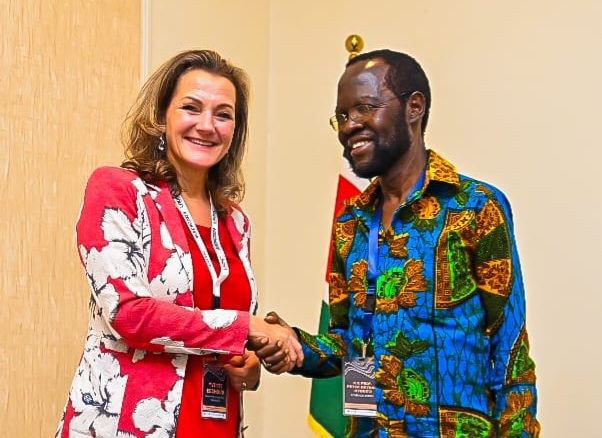Kisumu Governor Prof. Anyang Nyong’o has rooted for the full implementation of the digital health superhighway to enhance access to quality medical care across the country.
Nyong’o said digital health, which offers solutions for better health care, was critical in the implementation of Universal Health Coverage (UHC) calling on the Ministry of Health (MoH), county governments and partners to work together in the rollout of the initiative.
Kisumu County, he said, was taking the lead in digital health with over 850,000 people already registered through M-TIBA platform.
The data obtained through the digital registration, he added, enabled the county government to rollout insurance based UHC model targeting indigents who were identified through the digital platform.
This, he said has seen marked improvement in resource allocation to primary health facilities besides making referral systems in the area work.
He said this was powered by the comprehensive electronic community health management system (eCHIS) which the county has developed to provide accurate profiles and health data to inform resource allocation.
“A near-accurate population profile ensures that you focus on the vulnerable to reduce out of pocket expenditure,” he said.
He added that the system has enabled the County to achieve complete household visits and flag out community members to be referred for health services at the next level of service delivery.
“This single innovation has contributed heavily to the acceleration of health indicators in Kisumu particularly related to maternal and child health including reduction in stunting rates and increased skilled birth attendance,” he said.
Speaking during the inaugural Lake Region Digital Health Conference in Kisumu, Nyong’o said the system has enabled the sharing of health and related data across platforms enhancing access to quality medical care in the area.
“We have utilised the individual household data collected during registration, thus providing an avenue to tailor interventions to suit the unique health needs of individuals, households, and communities.
This evidence based and data-driven approach ensures that our health programming and service delivery are responsive and effective,” he said.
The benefits of digital solutions in the implementation of UHC, he said cannot be gainsaid calling on all county governments to play their part and ensure what the digital health act envisages is implemented.
“The debate that implementing digital health is too expensive should not arise because we have seen and tested the benefits,” he said.
He challenged innovators to come up with solutions that are user friendly so that nobody in the society is disenfranchised.
“Digital solutions and innovations must never be too complex because this will increase barriers and facilitate inequities which we are working to reduce,” he said.
The national government and county governments, he added, must ensure that health facilities are connected to the internet in order to benefit from the new innovations.
Speaking during the same occasion, Netherlands Deputy Director General for Foreign Economic Relations Yvette Van Eechoud lauded the efforts made by the Kenyan government in the rollout of digital health solutions in the country.
Eechoud said the innovations and lessons were a big milestone and will go a long way in shaping the rollout of digital health at the global stage.
The government of Netherlands which sponsored the conference, she said will continue to partner with Kenya in the digital health journey to enhance clinical experiences for patients across the country.
The conference whose theme is Harnessing Technology for Inclusive UHC brought together a delegation of Chief Executive Officers from Netherlands, county government officials from the Lake Region Economic Bloc counties and the Ministry of Health.
By Chris Mahandara




